Consultation - $400
Steven Reisman MD, who has been featured on Fox and CNN, is the founder and Director of the New York Cardiac Diagnostic Center which has a patient focused philosophy.
If you have any questions for the best in class NYC cardiologist or would like to schedule a consultation or appointment, please feel free to contact our Upper East Side Cardiologist’s Office by number (212) 860-0796; Midtown Manhattan Cardiologist’s Office (212) 582-8006; Wall Street / Financial District Cardiologist’s Office (212) 860-5404.
24 hour Holter monitor - $500
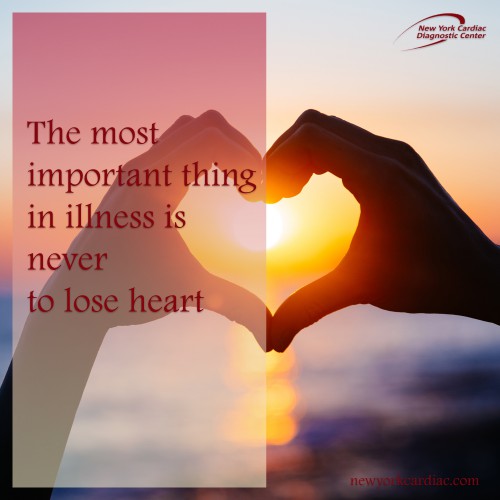
Best Heart Palpitations Cardiac Doctor NYC – (ECG) Monitoring NYC
The New York Cardiac Diagnostic Center offers Ambulatory “Holter” Electrocardiographic Monitoring. A Holter monitor is a small wearable ECG recording device. This remarkable cardiac test monitors your heart rhythm over 24 hours. During your cardiac testing period any abnormal heart beats/rhythms will be detected. The Holter monitor is about the size of a mobile phone and you will need to wear it around your waist. You can continue with your normal daily activities while you are wearing the device during your testing period.
*** Most people come to our Manhattan offices to see the cardiac specialist for this test due to heart palpitations.
Dr. Reisman is the best! Fabulous diagnostician and cardiologist. Very patient…he always explains everything very thoroughly to me. Professional organization with warm and friendly staff and great office with all the high tech devices so everything is done under one roof. Easy to schedule appointments. Empathetic. Accepts insurance. Always less than five minutes in the waiting room. He gets my highest recommendation. ~ZocDoc
The ability to record your heart rhythm over a period of 24 hours increases the likelihood of obtaining important cardiac diagnostic information that can direct appropriate medical treatment and to discover why you are having heart palpitations.
After your test period, the NYC cardiologist, Dr. Steven Reisman, will take the data from the monitor, analyze it, and produce a comprehensive report for your doctor.
The Ambulatory “Holter” Electrocardiographic (ECG) Monitoring test will ultimately provide you, your primary doctor, and the cardiologist with imperative information on which to base any decisions about your health.
The Ambulatory “Holter” Electrocardiographic (ECG) Monitoring Test is Performed to:
Identify abnormal beats and heart rhythms
Identify the cause of a racing heart
Evaluate your symptoms to see if it is related to your heart
Assess if your medications are controlling your symptoms or a known abnormal rhythm
To determine whether an abnormal heart rhythm (heart palpitations) might be the cause of a patient experiencing unexplained dizziness or blackouts
Doctor’s note: The test is completely painless and it is important that you wear the monitor throughout the day and night. It is also important that you do not get the monitor wet so please do not have a bath or shower while wearing it. It takes about 15 minutes to have the device applied and set up and about 5 minutes to remove it. Additionally:
You should wear loose clothing so that the monitor can be worn easily under your clothes
You should take a bath or shower before coming to your appointment as you will not be able to do so while wearing the holter monitor
Do not apply any body lotion or oil to your skin before the appointment, as this makes it difficult to attach the electrodes
If you have any questions for the best in class NYC cardiologist about your heart palpitations or would like to schedule a consultation or appointment please feel free to contact Dr. Steven Reisman of the New York Cardiac Diagnostic Center and indicate which NYC office (Upper East Side, Midtown Manhattan, or Wall Street / Financial District) you would like to see the cardiologist for a cardiac consultation.
Read more: https://newyorkcardiac.com/best-heart-palpitations-cardiac-doctor-nyc
Screening package (includes 1-4 above) - $2195
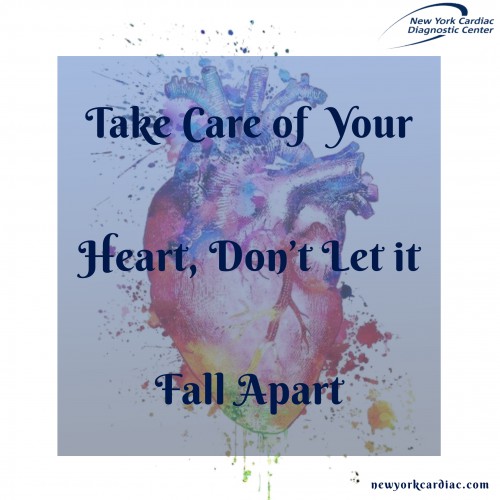
Cardiologist Manhattan: Cardiac Screenings NYC
New York Cardiac Diagnostic Center has built a reputation as a cardiac center of excellence in heart screening NYC for the assessment and diagnosis of patients with all forms of cardiac ailments. We offer an unrivaled service allied with state of the art equipment and cardiologists who are among the best in their fields.
What Is Cardiac Screening?
Cardiac screenings are various heart tests performed in order to discover different types of heart problems before the symptoms begin. The purpose of heart screening NYC is to discover disease in their earliest stage when it’s still possible to treat or prevent them. Cardiovascular screening for heart disease may include tests to check your blood and other fluids, tests to discover inherited genetic markers associated with heart ailments, and imaging tests for the heart.
Today, the leading cause of death worldwide is cardiovascular disease with over 17 million deaths each year. The American Heart Association is predicting that this trend will continue to increase. In the US alone, at least one person dies every 40 seconds due to heart issues. Cardiac screening tests are designed to greatly decrease the death rate through early detection and prevention.
We use the most up to date machinery available for cardiac screenings and can diagnose and plan treatment in the majority of patients.
Amazing doctor, great bedside manners, great attitude, very resourceful. The cardiologist has all machines needed for all possible cardiac tests so he won’t need to send you elsewhere – he has stress tests, ECG, Echo, and more. Accepts insurance! Highly recommend – gets it right the first time.~ ZocDoc
New York Cardiac Diagnostic Center, directed by NYC cardiologist, Dr. Steven Reisman has the most comprehensive suite of in-house services including heart screening test in Manhattan for:
High Blood Pressure
Sports Cardiology / Athletic Heart
Stroke
Sudden Cardiac Death
Heart Palpitations (Arrhythmia / Heart Rhythm Disorders)
Coronary Disease
Elevated Cholesterol
Evaluation of Heart Attack Risk
Hypertension
Heart Murmurs
Cardiomyopathy (Dilated and Hypertrophic)
Valvular Heart Disease
Aortic disease including Marfan syndrome
Whether you are seeking a cardiologist for interventional or precautionary cardiology testing or the problem is an asymptomatic heart murmur that may indicate significant valvular heart disease, the need to differentiate benign palpitations from a serious arrhythmia, the management of heart failure, or investigation of chest pain that could be angina, our NYC cardiologists can help.
Who Should Consider Heart Screening?
Many people assume medicine is there to cure or fix health problems, but frequently a preventative approach through the use of cardiovascular screening is far more beneficial. If you visit your primary healthcare provider regularly, they probably monitor well-known risk factors such as cholesterol and blood sugar levels and won’t offer any advice or other care unless these figures register as bad or are borderline for indicating poor health. By this time, some damage may already be present. As heart disease is such a common issue, it is better to practice preventative care and especially for people who could be at higher risk.
Most people will find seeing a cardiologist for regular heart screenings in NYC is useful, but some people will definitely benefit more because their level of risk is higher. There are four main groups of people who could be at higher risk of developing cardiovascular disease, and these include people who have a family history of cardiac issues, those who have a personal history of heart illness from an early age, people with cholesterol disorders, and people with multiple and uncontrolled risk factors.
Family History of Heart Illness
People with a known history of cardiac problems in their family line, particularly amongst parents or siblings are advised to perform cardiac screening tests to assess the risk indicators. If your family has a known history of vascular disease, it could be that there are gene issues at play and which may increase your risk of a heart attack, even if you have a good diet and exercise regularly. It’s possible to use advanced blood tests or even imaging tests of blood vessels including the coronary artery. These can determine if you have inherited any of the same factors affecting a family member with heart problems.
People who do have a strong history of cardiac ailments in their family line often think the risk doesn’t apply to them. Unfortunately, this isn’t true, and it’s worth having a cardiology screening test to assess the level of risk. A cardiologist can provide suitable heart screening tests, and if they discover there is a genetic factor, they can work with you to reduce your risk and the risk of others close to you, for example, any children. Having a suitable treatment plan in place that includes any lifestyle modifications or medications that are useful, could help to keep your heart strong and healthy.
Cardiac Screenings in NYC to Monitor Your Health
Of course, seeing a cardiologist is great, but it’s also useful to know more about your own health and to be aware of the potential risk factors, hopefully before they develop. Being more aware of your health could help you decide if or when you should see a cardiologist for a proper heart screening test.
Usually, most people who have heart attacks or a stroke are in their 50s and 60s, but cardiologists still see people who are significantly younger and who have heart issues. This is especially the case when the family line has a history of any heart ailments. Often people who have heart problems earlier in life will need a more significant amount of care. Not only is cardiac screening crucial for prevention but it might be necessary to screen for other indicators and to look for more innovative ways to manage these factors, reducing the overall risk.
Why Is Cardiovascular Screening Important?
Cardiovascular disease, also called coronary artery disease (CAD) is caused by various lifestyle factors like smoking, unhealthy diet, and physical inactivity. This increases your chance of developing high-risk diseases such as high blood pressure, and diabetes. Cardiovascular screening tests can identify if you are at risk of future heart problems. This is crucial since early detection is the best way to prevent complications such as heart failure, coronary artery disease, and stroke.
Do you have any questions for the best in class NYC cardiologist about heart screening tests? Would you like to schedule a consultation or appointment for a cardiovascular screening? Please feel free to contact Dr. Steven Reisman of the New York Cardiac Diagnostic Center and indicate which Manhattan diagnostic cardiology office (Upper East Side, Midtown Manhattan, or Wall Street / Financial District) you would like to see the cardiologist for a cardiac consultation.
Read more: https://newyorkcardiac.com/cardiologist-manhattan-nyc
Resting Echocardiogram - $965
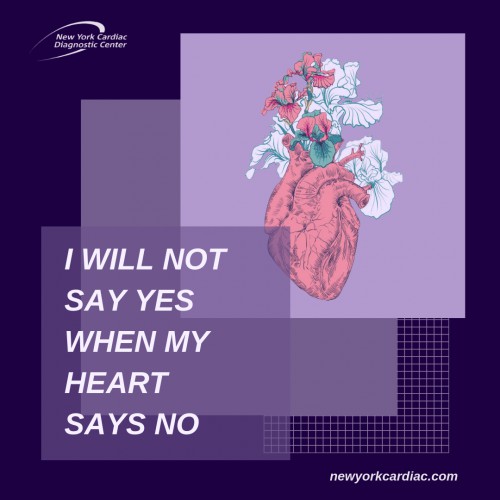
Best Echocardiogram Test Doctor NYC – ECG NYC
A echocardiogram test is a type of ultrasound used to look at how the heart is functioning. It’s a painless and non-invasive procedure that lets the NYC Cardiologist, Dr. Steven Reisman, see the anatomy, structure and function of all four chambers and valves of the heart, and is performed by a trained sonographer. An echocardiogram takes “moving pictures” of the heart with sound waves. The ultrasound and electrocardiography (ECG) signals are recorded digitally to be reviewed by the Cardiologist.
I have known Dr. Reisman for many years. My first experience with him was through a friend’s referral. A family situation came along where we needed a cardiologist, a great one. I am very thankful that I was referred to Dr. Reisman. He is a true leader in his field; very caring for his patients and he will go out of his way to help anyone. Dr. Reisman is very approachable and friendly. His office staffs are very friendly. After attending to my family situation I too was in need of a cardiologist for stress testing – I have been to the Wall Street & Upper East Side location – one close to work and one close to home. Again, my experience was 100% positive. If you are looking for a cardiologist don’t look any further. ~ Google
An echocardiogram is performed by a highly skilled cardiac technician and usually takes between 30 and 45 minutes. The patient lies on an exam table and an ultrasound probe is placed on the chest and two-dimensional pictures produced. This cardiac test can indicate heart chamber or valve abnormalities. The NYC cardiologist later reports on the findings and the results are usually available within two days.
Why is a Echocardiogram performed? An echocardiogram is performed to evaluate the valves and chambers of the heart in a non-invasive way. The echocardiogram allows doctors to diagnose, evaluate, and monitor:
Abnormal heart valves
Any structural or functional defects of the heart
Atrial fibrillation
Congenital heart disease
Damage to the heart muscle in patients who have had heart attacks
Heart murmurs
Infection in the sac around the heart (pericarditis)
Infection on or around the heart valves (infectious endocarditis)
Pulmonary hypertension
The heart’s pumping ability
The pumping function of the heart for people with heart failure
The source of a blood clot after a stroke or TIA
The structure, thickness and movement of the heart valves
The size of the chambers of the heart, which can change with conditions such as hypertension, heart damage with a myocardial infarction or congestive heart failure.
What can the results of the Echocardiogram show?
The size and shape of your heart
How well your heart is working overall (that is how well it contracts and how well it relaxes)
If a wall or section of heart muscle is weak and not working correctly
If you have problems with your heart’s valves
If you have a blood clot or fluid around your heart
How Exactly Does An Echocardiogram Work?
Sound waves are sent by the transducer towards the heart. Sound waves bounce back like an echo, similar to a sonar from a submarine. The echoes of the heart are then gathered by the transducer. The echoes are processed on a computer and a 2D image is produced on a screen. Through the transducer, echocardiogram allows vital areas of the heart to be examined.
If you have any questions for the best in class NYC cardiologist or would like to schedule a consultation or appointment please feel free to contact Dr. Steven Reisman of the New York Cardiac Diagnostic Center and indicate which NYC office (Upper East Side, Midtown Manhattan, or Wall Street / Financial District) you would like to see the cardiologist for a cardiac consultation.
Read more: https://newyorkcardiac.com/best-stress-test-echocardiogram-doctor-nyc
Exercise Echocardiogram (includes consultation) - $1230
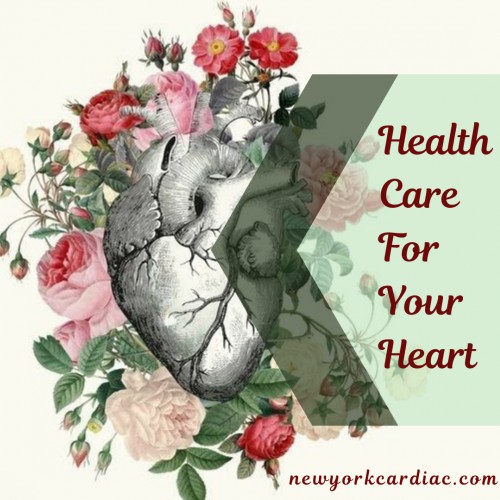
Best Manhattan NYC Stress Echo EKG Test Cardiac Doctor
The New York Cardiac Diagnostic Center offers Exercise Echocardiographic stress testing. Exercise echocardiograpy, also known as a stress echo, combines a resting echo with an exercise test. An exercise stress echocardiogram is ultrasound imaging of the heart before and after a treadmill exercise stress test. It shows how the chambers of the heart and heart valves handle physical work. The test helps cardiologists to find the cause of symptoms by evaluating heart function during physical stress or exercise. This is a painless and quick procedure used by the NYC cardiologist to determine how well your heart and blood vessels are working.
Results from this stress test are available shortly after the procedure. Compared to stress ECGalone, stress echo has a better diagnostic accuracy. The cardiologist, Dr. Steven Reisman, will explain your test results to you. If the results are normal, your heart is working properly and your blood vessels are probably not blocked due to coronary artery disease.
I can’t say enough good things about Dr. Reisman. I had my first appointment yesterday and I am beyond impressed. He is so patient and kind. He went through all of my history and and was extremely thorough. They performed tests that I needed right there on the spot! Go see Dr. Reisman if you want a cardiac doctor that truly listens, is extremely thorough, knows what he is doing, and can answer all of your questions. ~ ZocDoc
Doctor’s note: Wear comfortable, loose-fitting clothes. As you will be required to exercise, ensure you wear good walking or running shoes.
There are two parts to a Stress Echo test at our Manhattan facilities:
The Manhattan cardiologist will ask you to remove your clothes from the waist up and to lie on an echo bed. Small sticky patches, called electrodes, will be attached to your chest and connected to the echo machine. The doctor will then perform a normal resting echo.
The cardiologist will then ask you to do a treadmill or bicycle exercise so we can perform a second echo to complete the test.
The entire cardiovascular stress test at New York Cardiac Diagnostic Center will take approximately 1 1/2 hours. You will be asked to remove your shirt or blouse and given a towel or gown to keep you comfortable and maintain privacy. After lying on an examination table, the technologist will apply a colorless gel to your chest. A transducer will be moved across your chest to record different views of your heart.
During the stress echocardiogram, first, resting images of the heart are obtained. Second, an exercise tolerance test (ETT) or “stress test” is performed. The stress test measures your heart’s performance during physical activity. Electrodes will be placed on the chest in the same manner as an EKG. Your blood pressure, heart rate, and EKG will be recorded at rest, usually while you are lying on your back, and again while standing and during exercise.
Why is a Stress Echo Test performed?
To assess the heart’s general function and structures
To assess stress or exercise tolerance in patients with known or suspected coronary artery disease
To determine limits for safe exercise in patients who are entering a cardiac rehabilitation program and/or those who are recovering from a cardiac event, such as a heart attack (myocardial infarction, or MI) or heart surgery
Determine how well your heart tolerates activity
Evaluate the function of your heart and valves
Determine your likelihood of having coronary artery disease
To evaluate blood pressure levels during exercise
To evaluate the cardiac status of a patient about to undergo surgery
Evaluate the effectiveness of your cardiac treatment plan
If you have any questions for the best in class NYC cardiologist or would like to schedule a consultation or appointment please feel free to contact Dr. Steven Reisman of the New York Cardiac Diagnostic Center and indicate which NYC office (Upper East Side, Midtown Manhattan, or Wall Street / Financial District) you would like to see the cardiologist for a cardiac consultation.
Read more: https://newyorkcardiac.com/best-manhattan-nyc-stress-test-doctor-exercise-echocardiography
Electrocardiogram (EKG or ECG) - $90
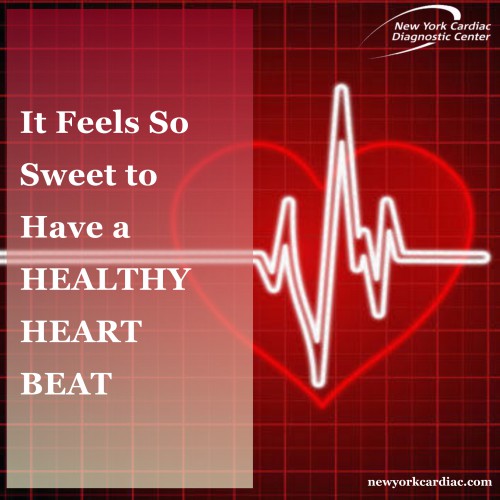
ECG Electrocardiographic Doctor Cardiologist Manhattan NYC
An Electrocardiogram (ECG or EKG) is a simple painless noninvasive test offered at theNew York Cardiac Diagnostic Center in Manhattan. An ECG records the rhythm and electrical activity of the heart. The cardiologist, Dr. Steven Reisman, may recommend an ECG for patients who may be at risk of heart disease because there is a family history of heart disease, or because they smoke, are overweight, or have diabetes, high cholesterol or high blood pressure. Additionally, a primary doctor may recommend an ECG if a patient is experiencing symptoms such as chest pain, shortness of breath, dizziness, fainting, or fast or irregular heartbeats (palpitations). ECGs are often performed to monitor the health of patients who have been diagnosed with heart problems, to help assess artificial cardiac pacemakers or to monitor the effects of certain medications on the heart.
During the ECG test electrodes will be attached to your arms, legs and chest. The electrodes (sticky patches applied with a gel) will connect to some wires to help detect and conduct the electrical currents of your heart. This important test normally only takes a few minutes.
The cardiologist will be look for a consistent, even heart rhythm and a heart rate between 50 and 100 beats a minute.
The NYC Cardiologist, Dr. Steven Reisman, may use an ECG to detect:
Heart rhythm
Heart rate
Congenital heart defects involving the conducting (electrical) system
Find the cause of unexplained chest pain, such as from a heart attack, inflammation of the sac surrounding the heart (pericarditis), or angina
Irregularities in your heart rhythm (arrhythmia)
Heart defects
Enlargement of the heart
Problems with your heart’s valves
Blocked or narrowed arteries in your heart (coronary artery disease)
A heart attack, in emergency situations
A previous heart attack
Inadequate blood and oxygen supply to the heart.
Assess the heart’s electrical activity for any abnormalities
Assess the cause of symptoms of heart disease, such as shortness of breath, dizziness, fainting, or rapid, irregular heartbeats (palpitations)
Find out if the walls of the heart chambers are too thick (hypertrophied)
Heart inflammation – pericarditis or myocarditis
Assess the health of the heart when other diseases or conditions are present, such as high blood pressure, high cholesterol, cigarette smoking, diabetes, or a family history of early heart disease
How do I prepare for an Electrocardiogram (ECG) stress test?
There is no special preparation required for an ECG. However, wearing clothing that gives easy access to the chest is helpful. You should come as you are and eat or drink as you normally do.
What happens after this cardiac test?
The ECG recording will be submitted to our Cardiologist, Dr. Steven Reisman, who is a specially-trained doctor in reading these recordings. He will interpret the recording and will then provide you & your physician with a written report of his findings.
The results of your ECG will determine your treatment, if any. Treatment depends on the diagnosed condition but may include, for example:
Arrhythmias – medication or surgery (such as installing an artificial pacemaker)
Coronary artery disease or heart attack – medications including beta-blockers, quitting cigarettes, dietary changes and coronary artery bypass surgery
High blood pressure – dietary changes, regular exercise and medications.
If you have any questions for the best in class NYC cardiologist or would like to schedule a consultation or appointment please feel free to contact Dr. Steven Reisman of the New York Cardiac Diagnostic Center and indicate which Manhattan office (Upper East Side, Midtown Manhattan, or Wall Street / Financial District) you would like to see the cardiologist for a cardiac consultation.
Read more: https://newyorkcardiac.com/ecg-electrocardiogram-stress-testing-nyc-manhattan-doctor-cardiologist
Comprehensive Screening package (includes 1-5 plus calcium score) - $2895
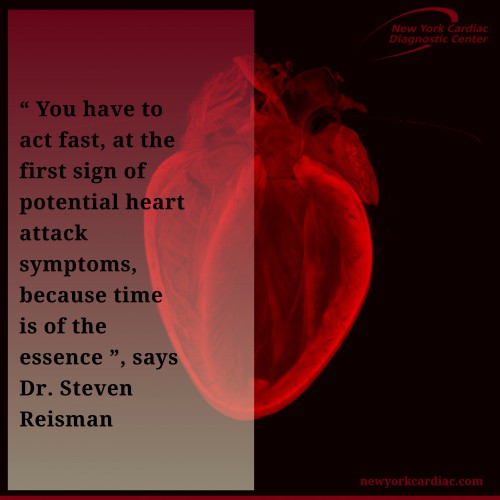
Cardiologist Manhattan: Cardiac Screenings NYC
New York Cardiac Diagnostic Center has built a reputation as a cardiac center of excellence in heart screening NYC for the assessment and diagnosis of patients with all forms of cardiac ailments. We offer an unrivaled service allied with state of the art equipment and cardiologists who are among the best in their fields.
What Is Cardiac Screening?
Cardiac screenings are various heart tests performed in order to discover different types of heart problems before the symptoms begin. The purpose of heart screening NYC is to discover disease in their earliest stage when it’s still possible to treat or prevent them. Cardiovascular screening for heart disease may include tests to check your blood and other fluids, tests to discover inherited genetic markers associated with heart ailments, and imaging tests for the heart.
Today, the leading cause of death worldwide is cardiovascular disease with over 17 million deaths each year. The American Heart Association is predicting that this trend will continue to increase. In the US alone, at least one person dies every 40 seconds due to heart issues. Cardiac screening tests are designed to greatly decrease the death rate through early detection and prevention.
We use the most up to date machinery available for cardiac screenings and can diagnose and plan treatment in the majority of patients.
Amazing doctor, great bedside manners, great attitude, very resourceful. The cardiologist has all machines needed for all possible cardiac tests so he won’t need to send you elsewhere – he has stress tests, ECG, Echo, and more. Accepts insurance! Highly recommend – gets it right the first time.~ ZocDoc
New York Cardiac Diagnostic Center, directed by NYC cardiologist, Dr. Steven Reisman has the most comprehensive suite of in-house services including heart screening test in Manhattan for:
High Blood Pressure
Sports Cardiology / Athletic Heart
Stroke
Sudden Cardiac Death
Heart Palpitations (Arrhythmia / Heart Rhythm Disorders)
Coronary Disease
Elevated Cholesterol
Evaluation of Heart Attack Risk
Hypertension
Heart Murmurs
Cardiomyopathy (Dilated and Hypertrophic)
Valvular Heart Disease
Aortic disease including Marfan syndrome
Whether you are seeking a cardiologist for interventional or precautionary cardiology testing or the problem is an asymptomatic heart murmur that may indicate significant valvular heart disease, the need to differentiate benign palpitations from a serious arrhythmia, the management of heart failure, or investigation of chest pain that could be angina, our NYC cardiologists can help.
Who Should Consider Heart Screening?
Many people assume medicine is there to cure or fix health problems, but frequently a preventative approach through the use of cardiovascular screening is far more beneficial. If you visit your primary healthcare provider regularly, they probably monitor well-known risk factors such as cholesterol and blood sugar levels and won’t offer any advice or other care unless these figures register as bad or are borderline for indicating poor health. By this time, some damage may already be present. As heart disease is such a common issue, it is better to practice preventative care and especially for people who could be at higher risk.
Most people will find seeing a cardiologist for regular heart screenings in NYC is useful, but some people will definitely benefit more because their level of risk is higher. There are four main groups of people who could be at higher risk of developing cardiovascular disease, and these include people who have a family history of cardiac issues, those who have a personal history of heart illness from an early age, people with cholesterol disorders, and people with multiple and uncontrolled risk factors.
Family History of Heart Illness
People with a known history of cardiac problems in their family line, particularly amongst parents or siblings are advised to perform cardiac screening tests to assess the risk indicators. If your family has a known history of vascular disease, it could be that there are gene issues at play and which may increase your risk of a heart attack, even if you have a good diet and exercise regularly. It’s possible to use advanced blood tests or even imaging tests of blood vessels including the coronary artery. These can determine if you have inherited any of the same factors affecting a family member with heart problems.
People who do have a strong history of cardiac ailments in their family line often think the risk doesn’t apply to them. Unfortunately, this isn’t true, and it’s worth having a cardiology screening test to assess the level of risk. A cardiologist can provide suitable heart screening tests, and if they discover there is a genetic factor, they can work with you to reduce your risk and the risk of others close to you, for example, any children. Having a suitable treatment plan in place that includes any lifestyle modifications or medications that are useful, could help to keep your heart strong and healthy.
Cardiac Screenings in NYC to Monitor Your Health
Of course, seeing a cardiologist is great, but it’s also useful to know more about your own health and to be aware of the potential risk factors, hopefully before they develop. Being more aware of your health could help you decide if or when you should see a cardiologist for a proper heart screening test.
Usually, most people who have heart attacks or a stroke are in their 50s and 60s, but cardiologists still see people who are significantly younger and who have heart issues. This is especially the case when the family line has a history of any heart ailments. Often people who have heart problems earlier in life will need a more significant amount of care. Not only is cardiac screening crucial for prevention but it might be necessary to screen for other indicators and to look for more innovative ways to manage these factors, reducing the overall risk.
Why Is Cardiovascular Screening Important?
Cardiovascular disease, also called coronary artery disease (CAD) is caused by various lifestyle factors like smoking, unhealthy diet, and physical inactivity. This increases your chance of developing high-risk diseases such as high blood pressure, and diabetes. Cardiovascular screening tests can identify if you are at risk of future heart problems. This is crucial since early detection is the best way to prevent complications such as heart failure, coronary artery disease, and stroke.
Do you have any questions for the best in class NYC cardiologist about heart screening tests? Would you like to schedule a consultation or appointment for a cardiovascular screening? Please feel free to contact Dr. Steven Reisman of the New York Cardiac Diagnostic Center and indicate which Manhattan diagnostic cardiology office (Upper East Side, Midtown Manhattan, or Wall Street / Financial District) you would like to see the cardiologist for a cardiac consultation.
Read more: https://newyorkcardiac.com/cardiologist-manhattan-nyc
New York Cardiac Diagnostic Center
65 Broadway Suite 1806
New York, NY 10006
(212) 860-5404
Web Address: https://newyorkcardiac.com/
Office Location: https://newyorkcardiac.com/best-financial-district-wall-street-cardiologists-nyc
Our locations on the map: https://g.page/New-York-Cardiology-Downtown-NYC
https://plus.codes/87G7PX4Q+W2 New York
Nearby Locations:
Financial District / Wall Street
World Trade Center | Two Bridges | Tribeca | Lower East Side
10007 | 10002 | 10003, 10009
Working Hours:
Monday - Friday: 8 am - 5 pm;
Saturday - Sunday: Closed
Payment: cash, check, credit cards.